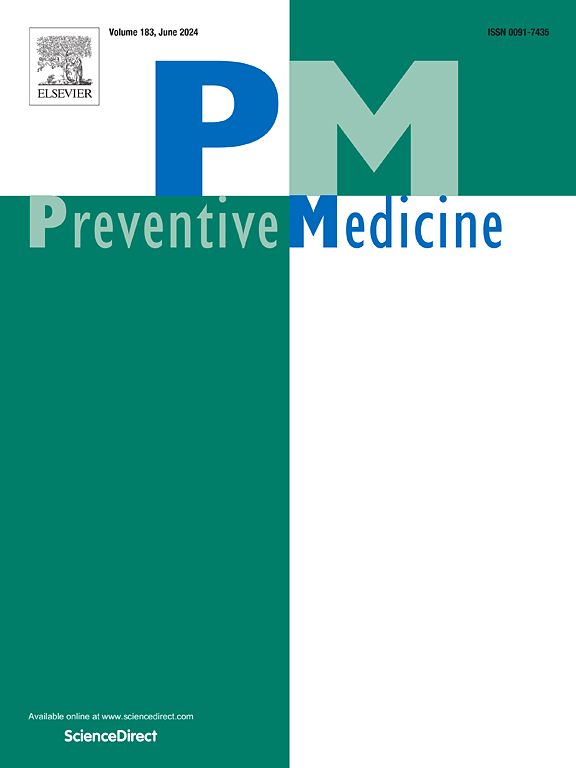Adverse childhood experiences, resilience, and substance use during early pregnancy
IF 3.2
2区 医学
Q1 MEDICINE, GENERAL & INTERNAL
引用次数: 0
Abstract
Objective
Adverse childhood experiences (ACEs) are common risk factors for unhealthy behaviors and poor health outcomes throughout the life course, but their relationship with prenatal substance use is understudied. This retrospective cohort study included 44,284 patients with pregnancies between January 1, 2022, and June 28, 2024, in a large healthcare system in Northern California, United States of America with universal screening for ACEs, resilience, and substance use during early pregnancy.
Methods
Multivariable regression models examined the relationship between ACEs and prenatal substance use and tested whether resilience moderated these associations.
Results
Pregnant individuals with a greater number of ACEs had lower resilience, were younger, more likely to be Black, Non-Hispanic White, or Hispanic, and live in an area with greater neighborhood deprivation. In adjusted models, compared to those without ACEs, those with ACEs had a higher adjusted prevalence of prenatal alcohol use, cannabis use, nicotine use, pharmaceutical opioid use, stimulant use, and multiple substance use. Low resilience was independently associated with an increased prevalence of prenatal substance use.
Conclusions
Results indicate that routine screening for ACEs may help identify pregnant individuals at risk for prenatal substance use, allowing for earlier linkage to resources and potentially improved maternal and child outcomes.
不良的童年经历、恢复力和怀孕早期的药物使用。
目的:不良童年经历(Adverse childhood experiences)是一生中不健康行为和不良健康结果的常见危险因素,但其与产前药物使用的关系尚不清楚。这项回顾性队列研究纳入了44284名在2022年1月1日至2024年6月28日期间怀孕的患者,这些患者来自美国北加州的一个大型医疗保健系统,对妊娠早期的不良童年经历、恢复能力和药物使用进行了普遍筛查。方法:多变量回归模型检验了不良童年经历与产前物质使用之间的关系,并测试了弹性是否调节了这些关联。结果:童年不良经历较多的孕妇适应力较低,年龄更小,更可能是黑人、非西班牙裔白人或西班牙裔,并且生活在更严重的邻里剥夺地区。在调整后的模型中,与没有不良童年经历的人相比,有不良童年经历的人在产前饮酒、大麻使用、尼古丁使用、阿片类药物使用、兴奋剂使用和多种物质使用方面的调整患病率更高。低恢复力与产前药物使用的流行率增加独立相关。结论:结果表明,对不良童年经历的常规筛查可能有助于识别有产前药物使用风险的孕妇,从而允许更早地与资源联系,并可能改善孕产妇和儿童的结局。
本文章由计算机程序翻译,如有差异,请以英文原文为准。
求助全文
约1分钟内获得全文
求助全文
来源期刊

Preventive medicine
医学-公共卫生、环境卫生与职业卫生
CiteScore
7.70
自引率
3.90%
发文量
0
审稿时长
42 days
期刊介绍:
Founded in 1972 by Ernst Wynder, Preventive Medicine is an international scholarly journal that provides prompt publication of original articles on the science and practice of disease prevention, health promotion, and public health policymaking. Preventive Medicine aims to reward innovation. It will favor insightful observational studies, thoughtful explorations of health data, unsuspected new angles for existing hypotheses, robust randomized controlled trials, and impartial systematic reviews. Preventive Medicine''s ultimate goal is to publish research that will have an impact on the work of practitioners of disease prevention and health promotion, as well as of related disciplines.
 求助内容:
求助内容: 应助结果提醒方式:
应助结果提醒方式:


